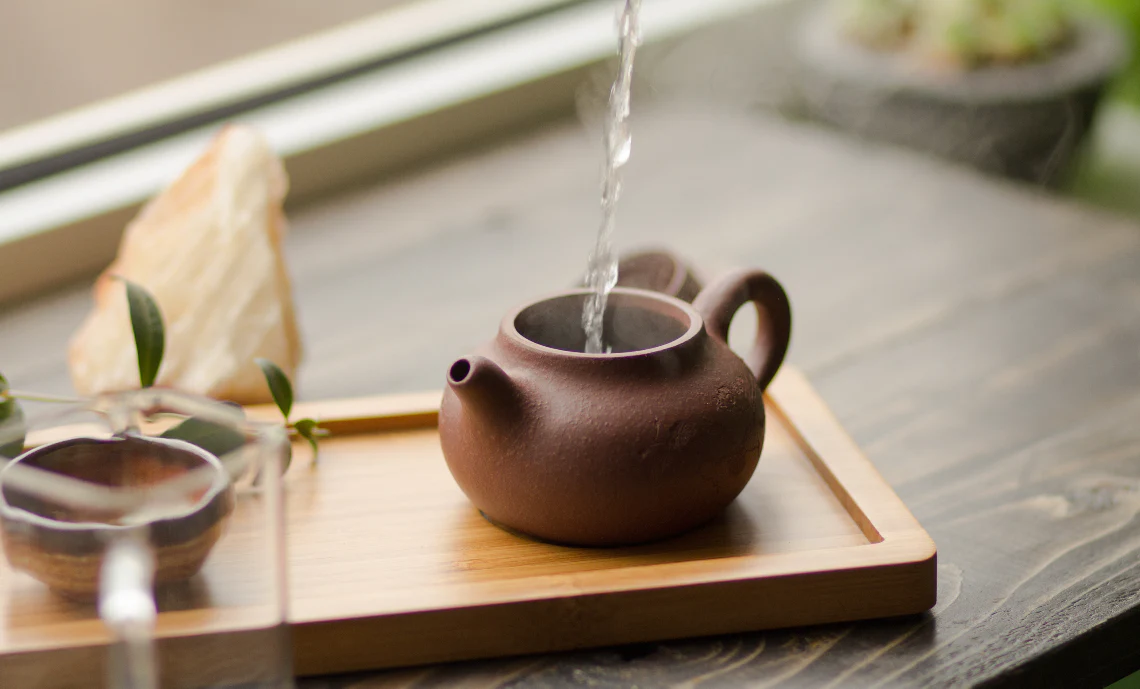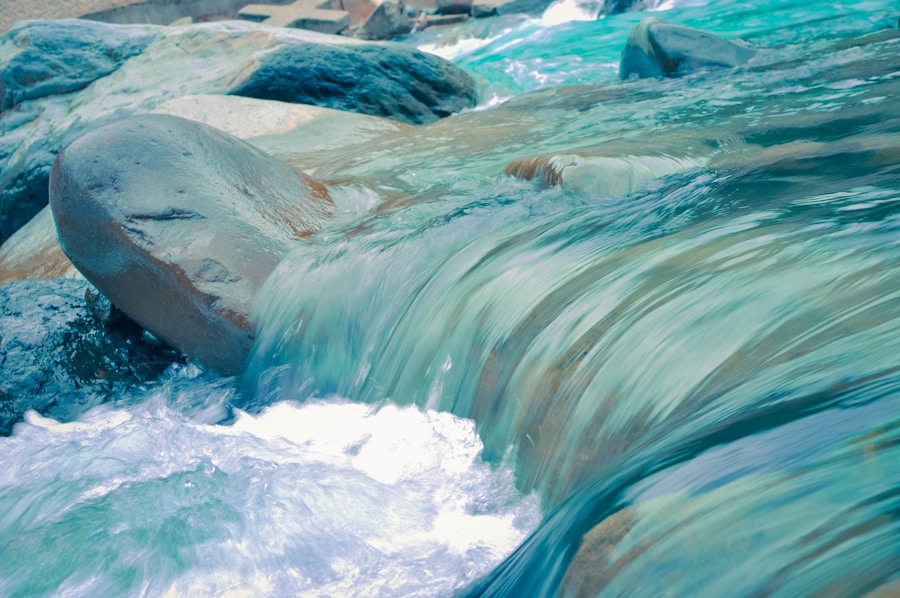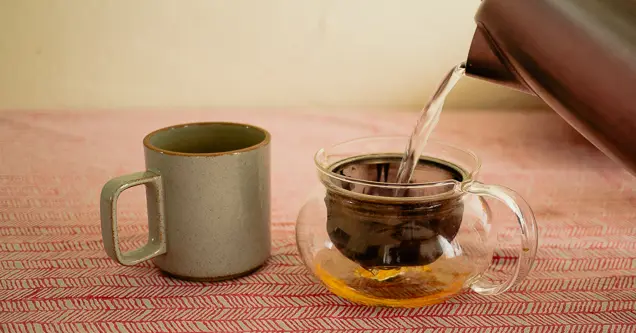Brewing with Distilled, Filtered, and Mineral Water: Which is Best for Your Tea?
Water is a crucial element in the art of tea brewing. It not only serves as the medium to extract the flavors and aromas from the tea leaves but also plays a significant role in determining the overall taste and quality of the brewed tea. The choice of water can greatly impact the final result, making it essential to understand the importance of selecting the right water for tea brewing.
The quality of water used in tea brewing can affect the taste, aroma, and appearance of the tea. Water that is too hard or too soft can alter the balance of flavors, resulting in a less enjoyable cup of tea. Additionally, impurities such as chlorine and fluoride found in tap water can negatively impact the taste and aroma of the tea. Therefore, it is crucial to choose water that is free from impurities and has the right mineral content to enhance the flavors of the tea.
Distilled Water: Pros and Cons for Tea Brewing
Distilled water is water that has been purified through a process of distillation, where impurities and minerals are removed by boiling the water and then condensing the steam. One advantage of using distilled water for tea brewing is that it is free from impurities and minerals that can affect the taste of the tea. This allows for a purer and more authentic flavor to come through.
However, there are also disadvantages to using distilled water for tea brewing. Since distilled water lacks minerals, it may not provide the necessary elements to bring out the full flavors of certain teas. Some teas require a certain mineral content in the water to fully develop their unique characteristics. Additionally, distilled water can have a flat taste due to its lack of minerals, which may result in a less satisfying cup of tea.
Filtered Water: Advantages and Disadvantages for Tea Brewing
Filtered water refers to water that has been passed through a filtration system to remove impurities and improve its taste. One advantage of using filtered water for tea brewing is that it can remove chlorine and other contaminants found in tap water, which can negatively affect the taste and aroma of the tea. Filtered water can also have a more balanced mineral content, providing the necessary elements to enhance the flavors of the tea.
However, there are also disadvantages to using filtered water for tea brewing. Depending on the type of filtration system used, some minerals may be removed along with the impurities, which can affect the taste and quality of the tea. Additionally, the effectiveness of the filtration system may vary, and it is important to choose a high-quality filter to ensure that all impurities are properly removed.
Mineral Water: Benefits and Drawbacks for Tea Brewing
Mineral water is natural water that contains minerals and trace elements, which can enhance the flavors of tea. One benefit of using mineral water for tea brewing is that it provides the necessary minerals to bring out the full flavors of certain teas. The mineral content in mineral water can complement and enhance the natural flavors of the tea leaves, resulting in a more enjoyable cup of tea.
However, there are also drawbacks to using mineral water for tea brewing. The mineral content in mineral water can vary depending on the source, which means that different brands of mineral water may have different effects on the taste and quality of the tea. It is important to choose a mineral water with a balanced mineral content that complements the specific type of tea being brewed.
Here’s a comprehensive comparison table of different water sources for tea brewing, along with explanations to help you make informed choices:
| Water Source | Mineral Content | Flavor Impact | Ideal For | Notes |
|---|---|---|---|---|
| Distilled | Virtually none | Flat, neutral | When specific mineral profile is unwanted | Can lack complexity, some find it too ‘clean’ |
| Tap (Municipal) | Varies greatly by location | Can impart metallic, chlorine, or other off-flavors | Not recommended unless filtered | Hardness and specific mineral levels matter |
| Spring | Moderate, depends on source | Subtle sweetness, minerality enhances certain teas | Delicate green & white teas, high-quality oolongs | Source purity is crucial |
| Bottled Mineral | High, varies by brand | Bold, highlights specific mineral notes | Black teas, robust flavored teas | Consider balance with the tea’s natural flavors |
| Filtered | Reduced chlorine, some minerals removed | Cleaner than tap, depends on filter type | All-purpose, good baseline option | Filtration degree impacts final taste |
| Reverse Osmosis | Nearly all minerals removed | Very neutral, similar to distilled | Showcasing delicate teas without interference | Can be too ‘flat’ for some palates |
pH Balance and Its Role in Tea Brewing
pH balance refers to the acidity or alkalinity of a substance, including water. In tea brewing, pH balance plays a crucial role in extracting the flavors and aromas from the tea leaves. The ideal pH range for tea brewing is between 6 and 7, which is slightly acidic to neutral. This pH range allows for optimal extraction of flavors without overpowering or dulling the taste of the tea.
Different types of water can have varying pH levels, which can affect the taste and quality of the brewed tea. For example, water that is too alkaline can result in a bitter and astringent taste, while water that is too acidic can make the tea taste sour or tart. It is important to choose water with a pH level within the ideal range to ensure a balanced and enjoyable cup of tea.
Hard Water vs Soft Water: Which is Better for Tea Brewing?
Hard water refers to water that contains high levels of minerals, such as calcium and magnesium. Soft water, on the other hand, has low mineral content. Both types of water have their advantages and disadvantages when it comes to tea brewing.
One advantage of using hard water for tea brewing is that the minerals in the water can enhance the flavors of certain teas. The calcium and magnesium ions in hard water can react with the compounds in tea leaves, resulting in a smoother and more robust flavor. However, hard water can also leave mineral deposits on teaware and affect the appearance of the brewed tea.
Soft water, on the other hand, can result in a cleaner and more delicate flavor profile. It allows the true flavors of the tea to shine through without any interference from minerals. However, soft water may lack the necessary minerals to fully develop the flavors of certain teas, resulting in a less satisfying cup of tea.
Chlorine and Fluoride in Tap Water: How They Affect Tea Flavor
Chlorine and fluoride are commonly found in tap water due to their use in water treatment processes. However, these chemicals can negatively impact the taste and aroma of tea. Chlorine, in particular, can give tea a harsh and chemical-like taste, while fluoride can make the tea taste bitter or metallic.
To remove chlorine and fluoride from tap water for tea brewing, there are several methods that can be used. One option is to use a water filter that is specifically designed to remove these chemicals. Another option is to let the tap water sit for a few hours to allow the chlorine to dissipate. Boiling the water can also help to remove chlorine, but it may not be as effective for fluoride removal.
Temperature and Its Impact on Water Choice for Tea Brewing
The temperature of the water used in tea brewing is crucial in extracting the flavors and aromas from the tea leaves. Different types of tea require different water temperatures to achieve the best results. Generally, green teas and white teas are brewed at lower temperatures, while black teas and herbal teas are brewed at higher temperatures.
The choice of water can also affect the temperature of the brewed tea. For example, hard water tends to have a higher boiling point than soft water, which means that it may take longer for hard water to reach the desired temperature for brewing certain types of tea. It is important to consider the characteristics of the water being used and adjust the brewing time and temperature accordingly.
Tea Varieties and Their Water Preferences
Different types of tea have their own ideal water preferences to bring out their unique flavors and characteristics. For example, green teas generally prefer lower water temperatures between 160°F and 180°F (71°C – 82°C) to prevent bitterness and astringency.
Black teas, on the other hand, can withstand higher temperatures between 200°F and 212°F (93°C – 100°C) to fully develop their bold flavors.
In terms of mineral content, certain teas may benefit from specific mineral profiles in the water. For example, oolong teas are known to thrive in water with higher mineral content, as it helps to enhance their complex flavors. On the other hand, delicate white teas may require softer water with lower mineral content to allow their subtle flavors to shine through.
Water Quality and Its Impact on Tea Health Benefits
The quality of water used in tea brewing can also affect the health benefits that tea provides. High-quality water that is free from impurities and contaminants ensures that the tea is not compromised and retains its beneficial properties. On the other hand, water that is contaminated or of poor quality may introduce harmful substances into the tea, negating its potential health benefits.
It is important to choose water that meets the highest standards of quality and purity for tea brewing. This can be achieved through the use of filtered or bottled water that has been tested and certified for its safety and quality. By selecting high-quality water, you can ensure that you are maximizing the health benefits of your tea.
Choosing the Best Water for Your Tea Brewing Needs
In conclusion, the choice of water is a crucial factor in tea brewing. The quality, mineral content, pH balance, and temperature of the water can greatly impact the taste, aroma, and overall quality of the brewed tea. It is important to consider these factors when selecting water for tea brewing to ensure a satisfying and enjoyable cup of tea.
When choosing water for tea brewing, it is important to consider factors such as the type of tea being brewed, personal preferences, and the characteristics of the water itself. Experimenting with different types of water can help you discover which one works best for your favorite teas.
Whether it is distilled water, filtered water, mineral water, or tap water treated to remove impurities, finding the right water for your tea brewing needs will result in a more flavorful and enjoyable tea experience.
Originally posted 2024-03-29 16:04:14.


